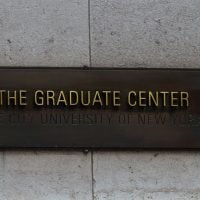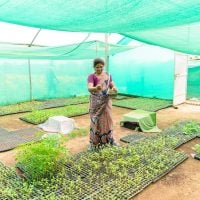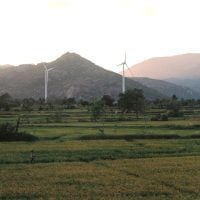Deadline: 31-Jul-2024
The Global Community Engagement and Resilience Fund (GCERF) is pleased to announce a call for expressions of interest for CSOs in Indonesia to become a Principal Recipient (PR) of GCERF funding.
GCERF funds CSOs, either directly or in consortia, to implement initiatives aimed at preventing violent extremism. Consortium grants are managed by “Principal Recipients” (PRs) who are the legal recipients of GCERF funding and then disburse funds and provide support to “Sub-Recipients” (SRs). “Recipients” of GCERF funding include: “Principal Recipients” and “Sub-Recipients” in the context of a grant to a consortium, and “Direct Grantees” that receive funding from GCERF but do not lead a consortium.
The purpose of this Expression of Interest (EOI) is for applicants to demonstrate that they meet GCERF’s prerequisites to receive funding and that they have sufficient technical, managerial and administrative experience to effectively implement a project that will seek to address the issues outlined below.
Received application forms will be evaluated against standardised criteria and applicants will be duly informed whether their proposed projects will move to the next stage of evaluation, which will include working with GCERF to add further detail to project design and budget.
As per GCERF’s Investment Strategy for Indonesia and in support of the BNPT in implementing NAP on PCVE and the Handayani Rehabilitation Center, the focus of the funding will be as follows:
- What
- Enabling prevention and resilience-building of different groups against VE by building vertical social cohesion through 1) community-based integration of returnees and former VE offenders, 2) community agency development, and 3) alternative economic capacitation
- It will be done by:
- Identifying CSOs based in the communities affected by terrorism.
- Developing a capacity assessment and building tool to evaluate, benchmark and track the progress of CSOs during the duration of the programme.
- Providing trainings to improve thematic knowledge on PVE.
- Providing trainings to improve operational capacity including on financial management, monitoring and evaluation, risk management, grant writing.
- Setting-up a mentoring/on-the-job training scheme for more experienced CSOs to support small CBOs in their region of work.
- Ensuring coordination with local government institutions and the larger strategic goals of the government of Indonesia.
- Supporting small CSOs in implementing PVE activities
- They intend to fund CSO and CBO-led programmes that will strive:
- To support rehabilitation and reintegration of VE groups returnees and former detainees charged with extremism through building an enabling environment (policy framework and capacity building of frontline workers and community leaders)
- To promote community-based (re)integration for returnees and their families, bridging them with the host communities, through social cohesion and economic alternatives interventions
- To raise awareness against online and in-person radicalisation, promoting critical thinking and digital literacy in formal, informal and religious educational institutions
- To enhance the role of women in PCVE in promoting social cohesion resilience through support to female leaders at the community level
- To increase access to economic opportunities for daily labour workers, small traders, returning migrant workers, and people from vulnerable or stigmatised neighbourhoods
- Who
- Applicants’ proposals should seek to target the following categories:
- Where
- Organisations must work in up to 6 cities/regencies in West Nusa Tenggara, 2 cities/regencies in Central Sulawesi, and 1 district in Jakarta. The selected areas are the following:
- Jakarta Province – Districts: Cipayung
- West Nusa Tenggara Province – City/Regency: Bima Regency, Bima City, Mataram City, Lombok Barat Regency, Lombok Timur Regency
- Central Sulawesi Province – City/Regency: Poso, Morowali
- Organisations must work in up to 6 cities/regencies in West Nusa Tenggara, 2 cities/regencies in Central Sulawesi, and 1 district in Jakarta. The selected areas are the following:
The safety and security of any staff or participants/beneficiaries of the project should be considered in project design. They encourage applicants to think innovatively and in response to the current needs and priorities.
Examples of such approaches could include:
- Rehabilitation and Reintegration: Capacity building of central-level, local level government R&R and PVE institutions and actors through technical support, development of guidelines, provision of training and facilitation of coordination.
- Community-based (re)integration: Reducing the stigmatisation towards returnees, increasing interreligious and inter-ethnic tolerance, and building capacities of communities on PVE and early identification; providing direct support to returnees and vulnerable people, including medical, psycho-social, educational, administrative, and livelihood support.
- Digital literacy: Conduct training and capacity building on Digital Media Literacy and Social Media Entrepreneurship to recognise and combat misinformation and ensure the ethical use of digital media.
- Livelihoods: Lifting barriers to meaningful social and economic opportunities through training, grants, working with cooperatives or unions, life skills training, Entrepreneurship, business management and provision of business and vocational-technical kits.
- Social cohesion: Enhancing community members’ sense of belonging to an inclusive and positive group or community through the promotion of community dialogue. This may include interfaith dialogue, safe spaces, and community action response teams) and through the promotion of tolerance (respect for other communities, beliefs, or lifestyles).
Funding Information
- They intend to issue a maximum of three grants for up to 2,4 million USD, no more than 800,000 USD each, over the duration of the grant period.
- This amount may increase, subject to grantee performance and availability of funds. Any application with a budget above this amount will not be considered.
- Proposed projects should cover a period of 3 years – 36 months.
Eligibility Criteria
- Grantee
- The potential grantee needs to be locally registered as NGOs in Indonesia, preferably with an office either in Jakarta, West Nusa Tenggara, or Central Sulawesi. Consortia should ensure that they have operational partners in each of these 3 locations, or at least, in each of the locations they are targeting. Please note that this call is only open to local NGOs.
- Prerequisites
- Appropriate legal registration with the Ministry of Law and Human Rights.
- Willingness to accept and fulfil the role of a Principal Recipient if applying in consortium.
- Required Capabilities
- Established relationships and credibility with the communities and population groups identified in the proposed geographical locations.
- Previous experience and current capacity in project design and management.
- Previous experience and current capacity to manage and account for international donor funding.
- Previous experience and current capacity to work within a consortium and/or managing subrecipients – for those choosing to form a consortium.
- Previous experience and current capacity to deliver community-level initiatives that address the local drivers and strengthen resilience against violent extremism.
For more information, visit GCERF.









































